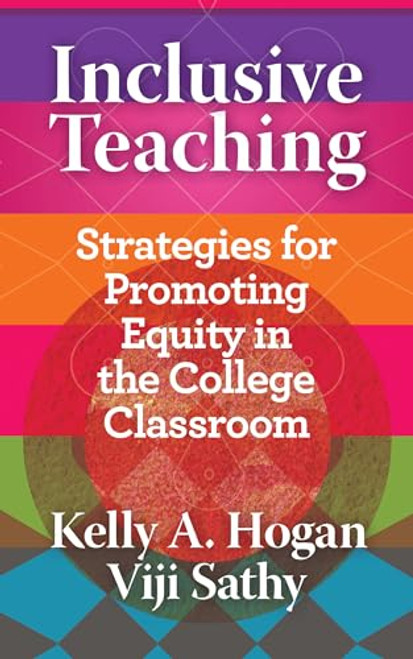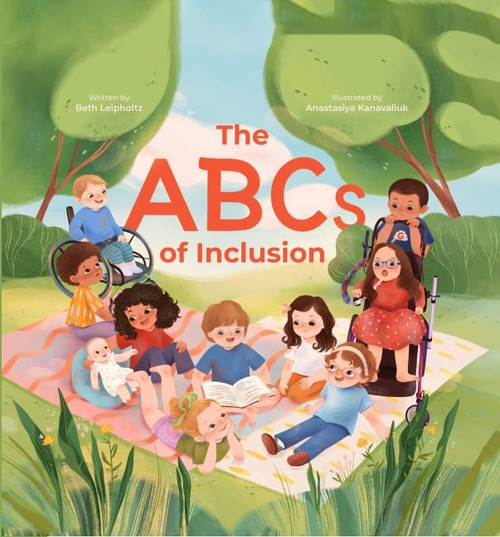This important book provides a unique merging of disability studies, critical multiculturalism, and social justice advocacy to develop both the knowledge base and the essential insights for implementing fully inclusive education. The authors expand the definition of inclusion to include students with a broad range of traditionally marginalized differences (including but not limited to disabilities, cultural/linguistic/racial background, gender, sexual orientation, religion, and class). Chapters provide 12 key principles important to developing a critical perspective toward educating diverse students. Book Features: Personal stories that make concepts accessible to new and pre-service teachers. Application exercises ideal for courses and professional development workshops. Highlight boxes that raise additional questions for discussion and debate. Interactive, multimodal instructional activities to use with many kinds of learners. Additional activities and resources available online at www.tcpress.com. Introduction: Critical Pedagogies, Inclusive Schooling, and Social Justice Diana Lawrence-Brown Part I. Understanding and Envisioning Inclusive Education 1.;How We Respond to DifferencesAnd The Difference it Makes Mara Sapon-Shevin 2.;Understanding Critical PerspectivesWho Benefits? Diana Lawrence-Brown 3.;Multiple Identities, Shifting Landscapes Janet Sauer 4.;The Social Construction of Difference Graciela Slesaransky-Poe and Ana Maria Garca 5.;Same Struggle, Different Difference: Linking Liberation Movements Mara Sapon-Shevin 6.;Evaluating Assumptions; Examining Evidence Diana Lawrence-Brown Part II: Enacting Inclusive Education 7.;Building Inclusive Communities Stacey N. Skoning & Kathryn Henn-Reinke 8.;The Art of Inclusive Teaching: Developing a Palette to Reach All Learners David J. Connor & Subini A. Annamma 9.;Considering Behavior as Meaningful Communication Robin M. Smith 10.;We Are What We Assess: How Schools Construct and Shape Identity and Performance Elizabeth B. Kozleski & Laura Atkinson 11.;Fostering Self-Determination Through Culturally Responsive Teaching JoDell Heroux, Susan Peters, & Maryl Randel 12.;Advocating for Successful School Change Valerie Owen, Kathleen Kotel, Julie Ramirez, Virginia Zeitlin, Elizabeth Dejewski, & David Feingold Conclusion: Examining Perspectives on Inclusive Education Diana Lawrence-Brown & Mara Sapon-Shevin
Condition CriticalKey Principles for Equitable and Inclusive Education (Disability, Culture, and Equity Series)
Teachers College Press
MSRP:
Was:
Now:
$54.49 - $67.55
(You save
)
(No reviews yet)
Write a Review

Write a Review

Teachers College Press
Condition CriticalKey Principles for Equitable and Inclusive Education (Disability, Culture, and Equity Series)
- SKU:
- UPC:
- 9780807754764
- Maximum Purchase:
- 2 units
- Binding:
- Paperback
- Publication Date:
- 12/5/2013
- Author:
- Sapon-Shevin, Mara
- Language:
- English: Published; English: Original Language; English
- Pages:
- 256

Equity-Centered Trauma-Informed Education (Equity and Social Justice in Education Series)
MSRP:
Was:
Now:
$32.40 - $39.13

Inclusive Teaching: Strategies for Promoting Equity in the College Classroom (Teaching and Learning in Higher Education)
MSRP:
Was:
Now:
$26.44 - $35.02

Reimagining Special Education: Using Inclusion as a Framework to Build Equity and Support All Students
MSRP:
Was:
Now:
$37.61 - $44.64

Julie Landsman
White Teachers / Diverse Classrooms: Creating Inclusive Schools, Building on Students Diversity, and Providing True Educational Equity
MSRP:
Was:
Now:
$57.72 - $66.67

Routledge
Disability Studies and the Inclusive Classroom: Critical Practices for Embracing Diversity in Education
MSRP:
Was:
Now:
$101.29 - $300.00

School Integration Matters: Research-Based Strategies to Advance Equity (Multicultural Education)
MSRP:
Was:
Now:
$12.72 - $55.84

Brand: Holcomb Hathaway, Publishers
Essentials of Teaching Adapted Physical Education: Diversity, Culture, and Inclusion
MSRP:
Was:
Now:
$130.42 - $157.89

Routledge
Case Studies on Diversity and Social Justice Education (Equity and Social Justice in Education Series)
MSRP:
Was:
Now:
$19.24 - $24.66
!

